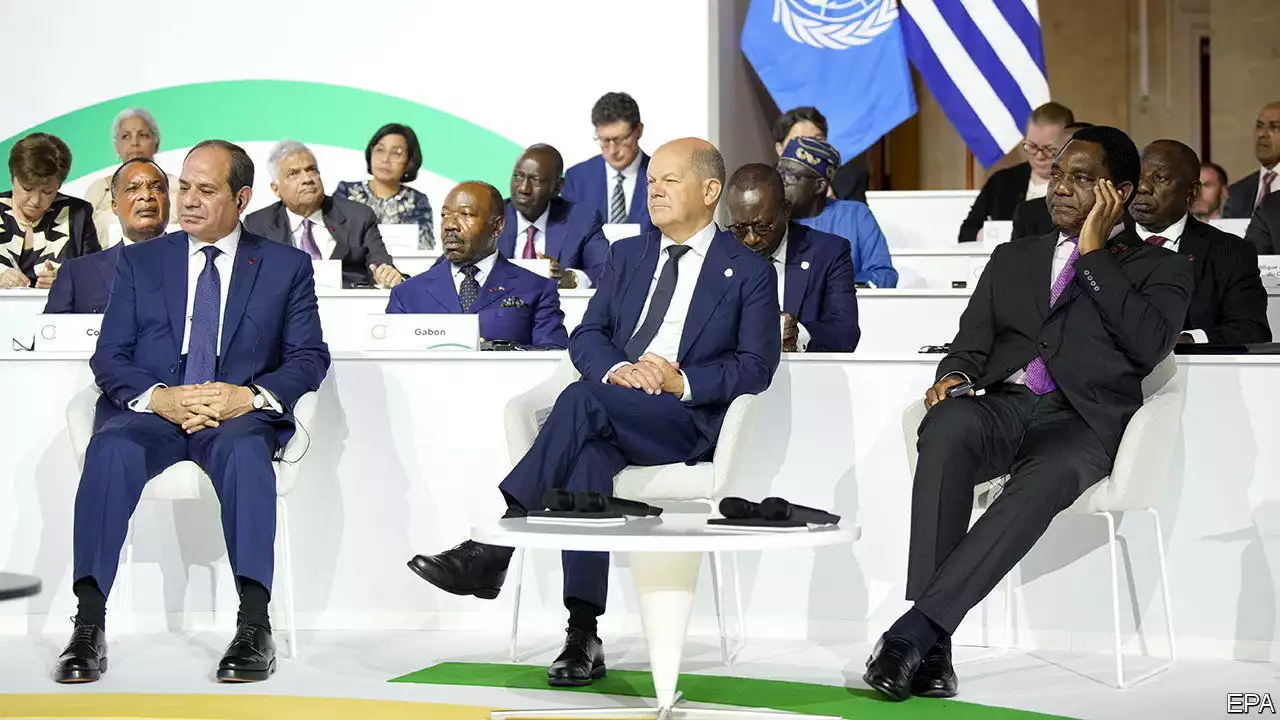China has rescheduled Zambia’s debts without writing them off
, Zambia’s rich-country creditors announced said deal: they had agreed to push back repayments on their lending by two decades to 2043. The wriggle room created by the extension, as well as accompanying interest cuts, could make Zambia’s debt burden considerably lighter—a surprise, since the biggest of the country’s creditors is China, which holds $4.2bn out of $6.3bn of its external debt to official creditors, and has spent the past few years obstructing an already chaotic process.
Thus international financiers were forced to get creative. Before the deal was announced, the amount Zambia owed official creditors fell from $8bn to $6.3bn. The borrowing was reclassified as having been lent by the private sector, so it could be left out of this part of the process, even though in reality it came from one of China’s state-run banks and was guaranteed by Sinosure, a state-run insurer. China still point-blank refuses to cut the face value of its loans.
The breakthrough also relied on unusual stipulations. Zambia will pay 1% annual interest on borrowing until 2025, a big discount. At this point, if Zambia’s economy is judged by theto be picking up, which is likely, the rate will rise to close to 4%, wiping out lots of the country’s debt relief. In this scenario, creditors, including Beijing, will earn about the same as they would have by putting the cash in ten-year Treasuries.
Zambia’s is the latest of several strange restructurings. In May Suriname, which owes China $155m and had been waiting three years for a deal, bucked a trend. It restructured lending from the private sector before it had reached an agreement with China, an official creditor. Last year Chad also managed to strike a deal, but only by rescheduling rather than lowering payments.
For now, that does not bother Mr Hichilema. He needs to tackle the next stage in his country’s restructuring deal: private-sector creditors. He must decide whether to emphasise the generous terms he has won from official donors, which stay if the economy struggles, or reassure bondholders that he is already working to ensure a world in which the terms become stingier, and his country is on the up.
日本 最新ニュース, 日本 見出し
Similar News:他のニュース ソースから収集した、これに似たニュース記事を読むこともできます。
 Why China is so keen to salvage shipwrecks in the South China SeaLast year researchers found two rotting shipwrecks some 1,500 metres down and 20km apart. China hopes these discoveries will enhance its dubious territorial claims
Why China is so keen to salvage shipwrecks in the South China SeaLast year researchers found two rotting shipwrecks some 1,500 metres down and 20km apart. China hopes these discoveries will enhance its dubious territorial claims
続きを読む »
 Battery Storage is King in China’s $7T New Energy Industry | OilPrice.comChina is set to spend trillions of U.S. dollars to adapt its energy system to growing shares of renewables, and battery storage will be key to integrating the constantly rising clean energy generation into the power systems
Battery Storage is King in China’s $7T New Energy Industry | OilPrice.comChina is set to spend trillions of U.S. dollars to adapt its energy system to growing shares of renewables, and battery storage will be key to integrating the constantly rising clean energy generation into the power systems
続きを読む »
 20 new events and activities to enjoy this summer, from food festivals to new lidos☀️ Lookins for new activities to enjoy this summer? emily_cope1 presents her pick of the best summer activities near you are a breath of fresh air for all the family ⬇️
20 new events and activities to enjoy this summer, from food festivals to new lidos☀️ Lookins for new activities to enjoy this summer? emily_cope1 presents her pick of the best summer activities near you are a breath of fresh air for all the family ⬇️
続きを読む »
 The key infrastructure owned by China, from European ports to US farmlandChina’s investments in other countries’ critical infrastructure has long been a sensitive issue for governments and media, but the Thames Water crisis has forced the topic back into the limelighy Taz_Ali_ explains key infrastructure owned by China ⬇️
The key infrastructure owned by China, from European ports to US farmlandChina’s investments in other countries’ critical infrastructure has long been a sensitive issue for governments and media, but the Thames Water crisis has forced the topic back into the limelighy Taz_Ali_ explains key infrastructure owned by China ⬇️
続きを読む »
Dozens of ASML shipments to China face tougher export curbs\n\t\t\tKeep abreast of significant corporate, financial and political developments around the world.\n\t\t\tStay informed and spot emerging risks and opportunities with independent global reporting, expert\n\t\t\tcommentary and analysis you can trust.\n\t\t
続きを読む »
 Financial sanctions may not deter China from invading TaiwanBroad financial sanctions are disruptive enough that it is hard to imagine their use in any scenario short of war. But if a war did break out, even severe sanctions might do little
Financial sanctions may not deter China from invading TaiwanBroad financial sanctions are disruptive enough that it is hard to imagine their use in any scenario short of war. But if a war did break out, even severe sanctions might do little
続きを読む »
